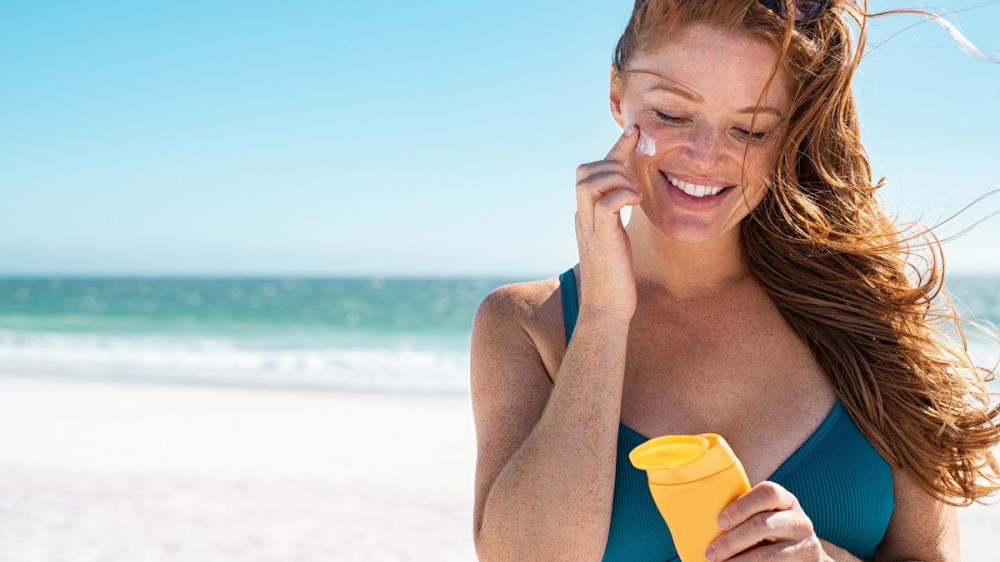
Buying Guide for Sunscreen for Your Face

Why buy sunscreen for your face?
If you spend a lot of time outside, it’s good to choose a great sunscreen for your face. Sunscreen for the face is gentler on delicate facial skin than sunscreen for your body. You don’t want a heavy sunscreen that will clog your pores, resulting in embarrassing breakouts. Facial sunscreens may also have additional skin-loving ingredients that tone and smooth your skin. And facial sunscreens generally have a high SPF, between 30 to 50, to keep you from getting burned or developing premature age spots due to sun exposure.
What should you consider in sunscreen for your face?
- Sun Protection Rating: It is recommended to use sunscreens rated SPF 30 to SPF 50 for your face. According to a leading skin cancer authority, SPF 30 allows you to stay in the sun for 30 times longer than you would without sunscreen without getting burned. Apply that same logic to SPF 50. Any sunscreen with an SPF factor above 50 will only work marginally better than an SPF 50 sunscreen, and it may contain more harmful ingredients. Remember, your sunscreen will only work if you use it as directed. Reapply when needed. And be sure if you’re enjoying the water to use waterproof sunscreen on your face.
- Potential Allergens: The most common ingredients in sunscreen that can cause allergic reactions are benzophenone, cinnamates, PABA, dibenzoyl methane, and fragrance. Then, other ingredients in sunscreen may cause general irritation, like preservatives and alcohol. Irritants may cause some redness and even inflammation in the skin and burning or itching, similar to an allergy, but will generally go away quickly. If you believe you’re having a severe allergic reaction to your sunscreen, immediately stop using it and contact a doctor or emergency care provider.
- Additional Skin Benefits: If you’re looking for a sunscreen with skin-loving ingredients, you have a great deal to choose from, and that’s a good thing. Even some all-natural facial sunscreens contain hyaluronic acid, an ingredient that helps with skin tiredness and wrinkles. Others may help prevent acne breakouts on your face. Some even contain skin-soothing aloe, a must-have if you already have a sunburn or redness or rosacea.
How much sunscreen should you wear on your face?
Dermatologists recommend using anywhere from 1/4 oz. to 1 and 1/3 oz. of sunscreen on your face and neck to protect your skin from damaging sun rays. This amount is less than half of what you need to cover the exposed areas of your body below your neck. It’s recommended to wear facial sunscreen daily if you’re going to be outside, even when it’s cool and cloudy.
Our Picks for the Best Sunscreen for Your Face
Pros: One of the best things about this sunscreen is the scent—or lack thereof. While it has a hint of the classic sunscreen fragrance, it’s barely noticeable. It also glides on smoothly, without a greasy feel or chalky residue. It contains zinc oxide, a proven UV-protectant that doesn’t cause allergic reactions.
Cons: This sunscreen is more expensive than many other brands.
Bottom Line: If you want a top-of-the-line sunscreen that will do the job without irritating your skin, this may be the best selection. While it’s a bit of an investment, many buyers swear by its effectiveness and skin-loving ingredients to improve your skin tone.
Pros: This sunscreen is easy to apply with its lightweight, matte formula, and a little goes a long way. It is non-comedogenic, keeping your skin free of acne and clogged pores. It’s also waterproof, as long as it’s reapplied every 80 minutes.
Cons: It has a fairly strong fragrance.
Bottom Line: If you have acne-prone skin and need a safe and effective facial sunscreen, this may be an excellent choice for you. It can help to prevent redness and hyperpigmentation for the most sensitive skin.
Pros: One great thing about this sunblock is the pump bottle which gives you just the right amount for your face. It is made with natural, non-comedogenic ingredients and won’t irritate the skin. It also has a pleasant, light floral fragrance.
Cons: This sunscreen may leave a white cast on your skin unless you rub it in thoroughly.
Bottom Line: This is an excellent pick for a natural sunscreen with added skin-soothing benefits. It comes from a trusted name in natural skincare and is known to improve the skin’s firmness.
Pros: If you have ever had to chase down a wiggly child to put on traditional sunscreen, you will love this stick. It makes it easy to get the sunscreen exactly where you need it without the mess. This facial sunscreen has a high SPF rating of 70, excellent for little ones. It is made with a hypoallergenic, water-resistant formula for children who are on the move.
Cons: It leaves a little bit of a slick residue on the skin.
Bottom Line: This facial sunscreen stick is a win for parents and caregivers. It’s small but mighty, delivering maximum sun protection for up to two hours, even in the water. And though it’s small, this stick may last you a long time.
Pros: This sunscreen facial lotion works great for sensitive skin with a zinc oxide formula that spreads easily and absorbs well. It has a light moisturizing effect, leaving your skin dewy and beautiful without being too greasy. Since it’s non-comedogenic, it shouldn’t cause oiliness or breakouts.
Cons: This may not be the best choice for people with dry skin.
Bottom Line: This light lotion is a simple and affordable daily facial sunblock from a brand known for healing and treating the skin with care.
Final Thoughts
Give your skin ultimate love and protection with good-quality sunscreen. An easy, daily sunscreen can be worn for whatever activity you do, or you can consider a heavy-duty formula for when you’re in the water. Consider a sunscreen that protects you from UV rays and should help you avoid hyperpigmentation, premature wrinkles, and other skin issues.
 Yaspan Tech, Computers, Gadgets, Reviews, News and Analysis
Yaspan Tech, Computers, Gadgets, Reviews, News and Analysis




